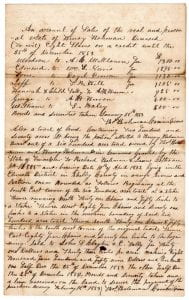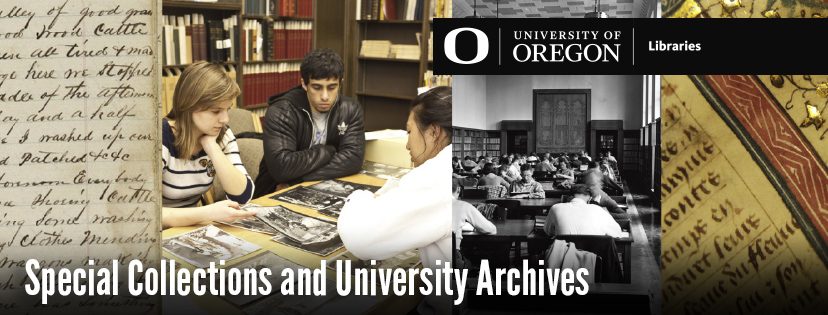New Acquisition: Slavery Documents

The antebellum period of the United States was harsh and biting, clothed in darkness by the perpetuation of the institution of slavery. The institution of slavery was nestled in the racial attitudes and political leanings of British colonists, attitudes and leanings that incubated a society prone to its development, where “slavery […] is a symptom of this political culture, rather than a cause” (Acharya et al., 2018, p. 106). Hubris provided a justification for the perpetuation of slavery. William Brownlow, a newspaper editor and post-Civil War governor of Tennessee, stated, “God always intended the relation of master and slave to exist,” and posited the church as an institution supportive of maintaining this arrangement (Acharya et al., 2018, p. 106). The deeply-rooted prejudices and racism driving the growth of a system of slavery in the States, and the arrogance to believe oneself as above the life and humanity of another, provide little mystery as to how a piece of paper with calligraphic printing could have the power to provide freedom, granted through manumission or other statements and affidavits, or to bequeath, trade, or sell African American slaves through wills and testaments.
University of Oregon Special Collections and University Archives (SCUA) recently acquired an antebellum-era document, “Statement Attesting that a ‘Negro Woman’ is Free Born, Frederick County, MD, 1832.” The statement claims Charlotte Jaines of Frederick County, Maryland, is “free born.” It is of a collection of documents known as freedom papers – manumissions, statements, affidavits, etc. – proclaiming freedom to whom the document refers. The official declaration stated,
Maryland, Frederick County, to wit, on this 19th day of May 1832, before me the Subscriber and Justice of the Peace in and for said country, personally appeared David Harris and makes oath on the holy Evangely of Almighty God, that Charlotte Jaines the negro woman now in my presence is a free born, to the best of his knowledge. Sworn before George Rice.

Another recent acquisition of University of Oregon Special Collections and University Archives (SCUA) from the antebellum period is “An Account of the Sales and the Real and Personal Estate of Henry Holeman Deceased.” Henry Holeman was a resident of Shelby County, Tennessee. Historically, the population of Shelby County had the one of the highest percentages of enslaved persons (35%) in the state of Tennessee, and heavily relied on slavery to support the economy (Acharya et al., 2018). Upon Holeman’s death, Holeman’s account, dated February 18, 1853, stated the recipients of eight slaves owned by Holeman and their respective prices, and settled matters of personal property, including approximately 270 acres of land (James E. Arsenault & Company, 2020).
These documents are illustrative of the harsh, biting history of slavery. To wade through the ugliness of history is as paramount of a task as the study of illuminating points of history. Converse, examine, dissect. Listen, carefully, and lead.
Special Collections and University Archives serves as a repository of historical materials, some of which may be considered prejudiced, stereotyped or offensive. Historical data is an important resource in the study of contemporary and past cultures. As such, we take seriously our responsibilities in preserving and cataloging such material and provide access for the purpose of scholarly research and study. See: SCUA Statement Regarding Objectionable Content
Sources
Acharya, A., Blackwell, M., & Sen, M. (2018). Deep roots: How slavery still shapes Southern politics. Princeton University Press.
James E. Arsenault & Company. (2020). The sale of eight named slaves in Tennessee. James E. Arsenault & Company. https://jamesarsenault.com
Written by Alexandra Mueller (Special Projects Archivist)

